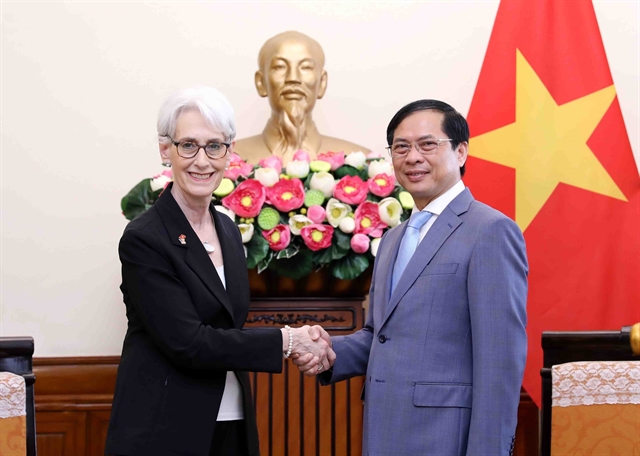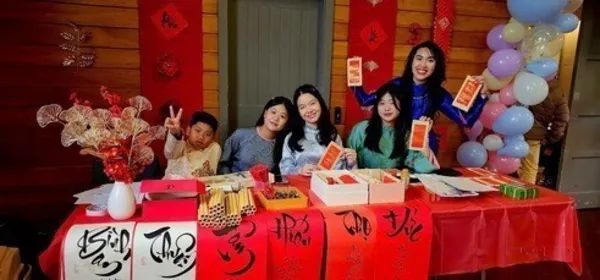 Politics & Law
Politics & Law


|
| Minister of Foreign Affairs Bùi Thanh Sơn meets US Deputy Secretary of State Wendy Sherman in Hà Nội on Monday. — VNA/VNS Photo |
HÀ NỘI — Việt Nam considers the US a leading important partner and stands ready to work together with the country to deepen the bilateral comprehensive partnership in an effective and practical manner, on the basis of respect for independence, sovereignty, territorial integrity and political institutions, Vietnamese Minister of Foreign Affairs Bùi Thanh Sơn has said.
Speaking at a reception for US Deputy Secretary of State Wendy Sherman in Hà Nội on Monday, Sơn thanked the US administration and Congress, including the Department of State, for their warm welcome for the Vietnamese delegation during their trip to the US last month for the ASEAN-US Special Summit.
The minister also congratulated the US on its successful organisation of the summit, which demonstrates the country’s long-term commitments to enhancing cooperation with ASEAN and supporting the bloc’s centrality, and contributing to peace, stability, cooperation and development in the region.
For her part, Sherman also affirmed the importance the US attaches to the comprehensive partnership, saying the US consistently backs a strong and prosperous Việt Nam and wishes to advance the relationship at a suitable time.
Reviewing the US trip by Prime Minister Phạm Minh Chính last month, she said it had created momentum for bilateral ties, especially in economy, trade and investment.
The US would continue its intensive, extensive and responsible cooperation with the Asia-Pacific and Indian Ocean, and strengthen collaboration with ASEAN member countries, she pledged.
The two sides compared notes on specific measures to step up bilateral cooperation in areas such as high-level delegation exchanges, pandemic prevention and control, post-pandemic socio-economic recovery, investment, trade, war consequence settlement and the construction of representative offices of the two countries.
They also exchanged views on regional and international issues of shared concern like connectivity initiatives in the Indo-Asia-Pacific region, the East Sea issue, sustainable development, educational cooperation in the Mekong sub-region, and the Russia-Ukraine conflict.
The same day, Deputy Minister of Foreign Affairs Hà Kim Ngọc had a meeting with Sherman, during which the host suggested the US Deputy Secretary coordinate with the Vietnamese side to accelerate the visit to Việt Nam by President Joe Biden this year.
Ngọc called for the US’ sharing of information about regional initiatives and its further support to Việt Nam in the settlement of war consequences and clean energy transition.
Sherman spoke highly of Việt Nam’s participation in the launch of the discussion on Indo-Pacific economic framework, which offers an opportunity for Việt Nam and other regional countries to contribute to the formation of common standards and rules for potential cooperation fields like digital economy, clean energy transition and economic resilience improvement.
The US and other countries are willing to help Việt Nam with resources, finance and technology to fulfil its commitments at the United Nations Climate Change Conference (COP26) and address war consequences, she continued.
Sherman also announced the US’ additional funding of US$19 million for bomb and mine clearance in Việt Nam.
Regarding regional and international issues of shared concern, the two sides emphasised the significance of observing basic principles of the United Nations Charter, respecting independence, sovereignty and territorial integrity of countries, ensuring security, safety and freedom of navigation and aviation, and peacefully settling disputes in line with international law, including the 1982 United Nations Convention on the Law of the Sea (1982 UNCLOS).
They consented to continue their close coordination at regional cooperation frameworks, especially ASEAN mechanisms and Mekong sub-regional cooperation. — VNS




